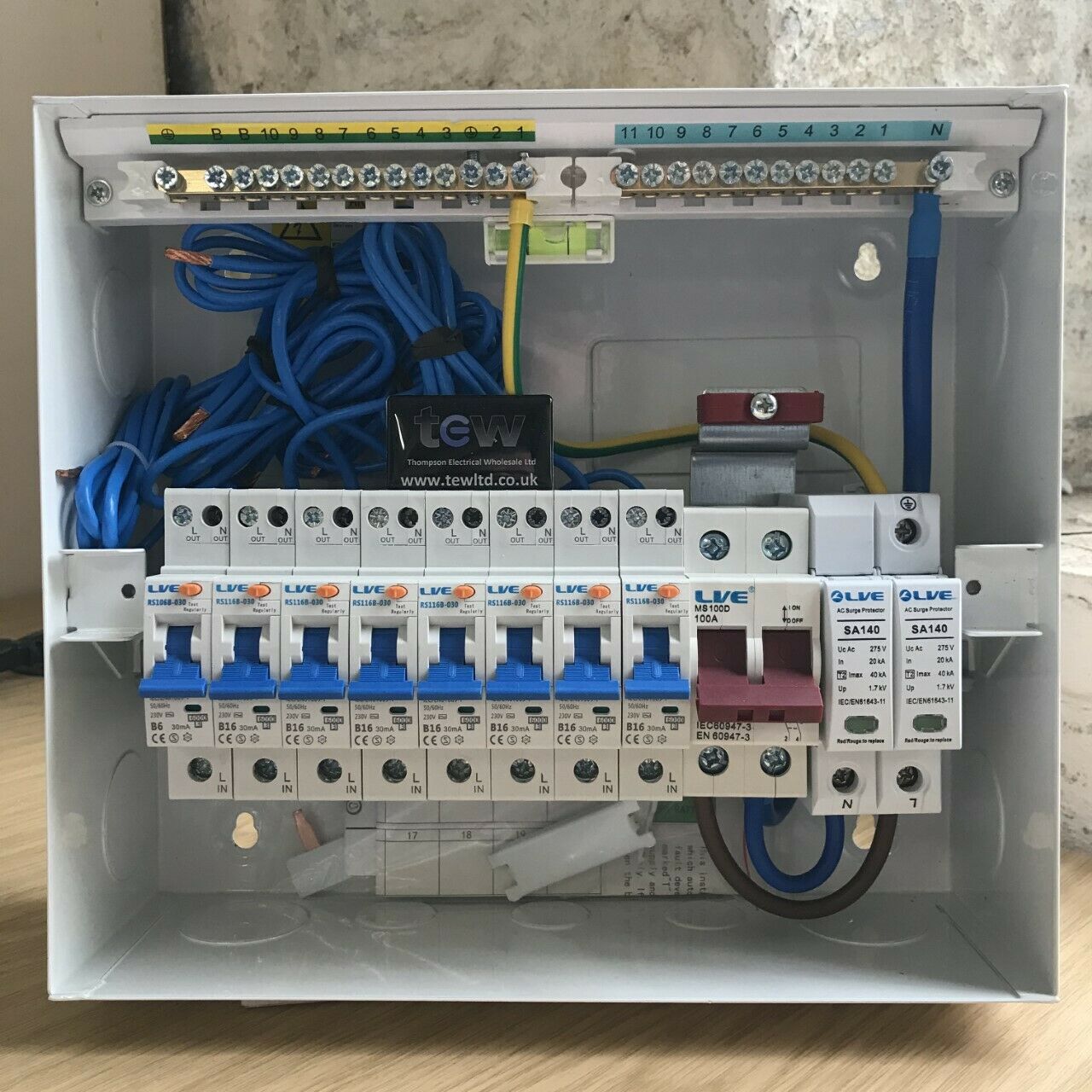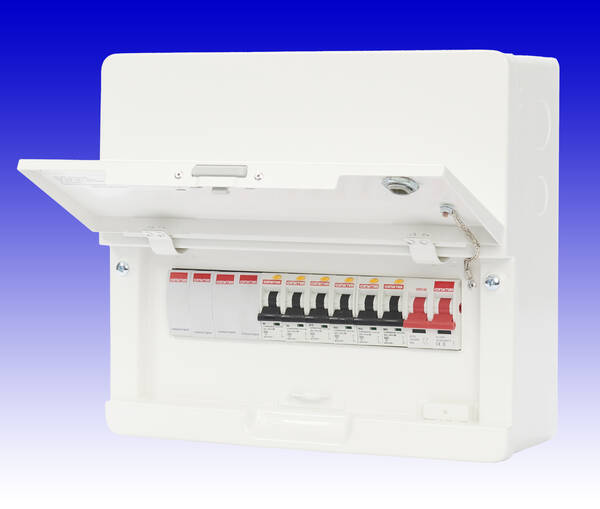Comprehending the Benefits of RCBO CONSUMER UNITS for Modern Residences
Comprehending the Benefits of RCBO CONSUMER UNITS for Modern Residences
Blog Article
The Role of Customer Systems in Efficient Energy Management Equipment
Customer systems are integral to efficient power management systems, serving as the main distribution points for electric power within structures. The arrival of clever modern technologies has further boosted their performance, permitting for real-time information monitoring and nuanced energy usage analysis.
Comprehending Customer Devices

Recognizing the duty of customer systems starts with identifying their important feature in guarding electrical systems. By separating mistakes within details circuits, consumer devices prevent prevalent interruptions and prospective fire risks. This seclusion is attained through the usage of breaker that trip or fuses that blow when a mistake is found, thereby removing the electrical circulation to the affected circuit.
In addition, consumer systems facilitate the organized distribution of power, improving the efficiency of power use. They permit for the systematic monitoring of electrical tons, which can be particularly vital in commercial and commercial setups where need can vary considerably. Appropriately maintained customer systems add to the longevity of electric systems and aid in lessening downtime brought on by electric failings, inevitably supporting the smooth procedure of energy-dependent facilities.
Smart Technologies Integration

A vital benefit of clever consumer systems is their capacity to utilize advanced formulas and artificial intelligence for anticipating analytics. This enables preemptive modifications based on use patterns, weather prediction, and other variables, dramatically enhancing general effectiveness. Furthermore, smart consumer systems assist in demand reaction programs, where power usage can be dynamically readjusted throughout top durations to stabilize the grid and decrease expenses.
The combination of renewable resource resources, such as solar and wind, is likewise streamlined with clever customer devices. By wisely managing the intermittency of these resources, these units ensure a well balanced and dependable power supply. Furthermore, smart consumer devices boost customer involvement by supplying in-depth insights and remote capacities via mobile applications, cultivating a much more aggressive approach to power preservation and sustainability.
Surveillance Energy Usage
Building on the capacities of smart innovations assimilation, monitoring energy intake ends up being an essential focus within energy monitoring systems. By leveraging sophisticated metering facilities (AMI), real-time data on energy use can be gathered at granular degrees, giving important understandings into intake patterns and peak demand periods.
Smart meters and Web of Things (IoT) tools play a critical duty in this surveillance process. These gadgets can track energy use in real-time, sending data to central systems for analysis.
The combination of these technologies not only empowers customers with comprehensive details about their power usage yet additionally sustains utility service providers in taking care of tons distribution extra effectively. Inevitably, precise and continuous surveillance is vital for achieving power efficiency, cost savings, and sustainability objectives within energy administration click for source systems.
Optimizing Appliance Usage

One efficient approach includes determining optimal and off-peak hours to move energy-intensive tasks, such as washing or dishwashing, to times when energy demand is lower. This not only decreases strain on the grid however also takes advantage of reduced power tariffs. Additionally, integrating artificial intelligence algorithms permits anticipating maintenance, guaranteeing home appliances operate at optimum effectiveness and extending their life-span.
Energy administration systems can likewise incorporate user-specific choices and actions to tailor home appliance usage routines. Wise illumination systems can adjust illumination based on occupancy and natural light schedule, while Heating and cooling systems can maintain convenience degrees without extreme energy use.
Encouraging Sustainability
Promoting sustainability within energy management systems entails not only boosting efficiency but likewise promoting ecologically responsible practices. Consumer systems are integral to this process, as they offer real-time information and control mechanisms that make it possible for individuals to monitor and minimize their energy usage. By leveraging innovative modern technologies, consumer units can determine energy-saving opportunities and facilitate the combination of renewable resource sources like solar and wind power.
One vital aspect of promoting sustainability is informing consumers on the benefits of responsible energy use. With in-depth insights provided by customer devices, users can make informed decisions that lessen their carbon impact. These units can advise optimal times for running high-energy home appliances based on grid demand and eco-friendly power schedule, therefore reducing dependence on fossil fuels.
Furthermore, customer systems support the fostering of wise grid innovations, which enhance the total performance and dependability of power distribution. By enabling two-way interaction between customers and energy suppliers, these systems can dynamically get used to energy demands, lowering waste and advertising the usage of sustainable power methods.
Final Thought
Customer systems, as indispensable parts of power administration systems, significantly boost electrical security and efficiency within structures with circuit defense and clever innovation assimilation. Real-time information surveillance and analysis assisted in by these devices enhance power consumption and device use. Furthermore, the incorporation of eco-friendly power sources promotes lasting methods, adding to lowered overall energy intake and lower carbon impacts. As a result, consumer units play a vital role in progressing both energy performance and environmental sustainability.
Advancements in why not check here wise innovations have transformed the capabilities of energy management systems, specifically via the integration of wise customer devices.Building on the capacities of smart innovations assimilation, keeping track of power usage becomes an important focus within power administration systems.Efficient device use optimization is a critical element of power monitoring systems, intending to boost efficiency and lower unneeded energy consumption.Customer systems, as integral elements of energy administration systems, significantly boost electric security and efficiency within buildings through circuit protection and wise innovation assimilation. Additionally, the unification of sustainable power sources promotes lasting practices, contributing to decreased overall energy consumption and reduced carbon impacts.
Report this page